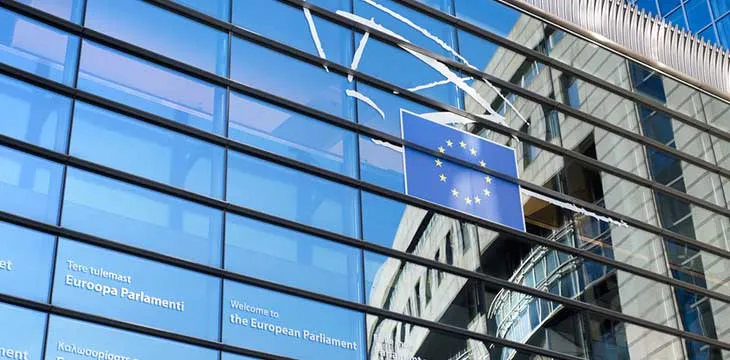|
Getting your Trinity Audio player ready...
|
The European Parliament and the European Council have reached a provisional agreement on their long-promised markets in crypto-assets (MiCA) proposal, ushering in a raft of new legislation aimed at addressing unbacked digital assets as well as stablecoins, exchanges and wallets.
The MiCA proposals have been brewing since September 2020, and have undergone repeated revision since then. The effort signifies the European Union’s renewed urgency in ensuring that European law addresses issues posed by digital assets.
“This package bridges a gap in existing EU legislation by ensuring that the current legal framework does not pose obstacles to the use of new digital financial instruments and, at the same time, ensures that such new technologies and products fall within the scope of financial regulation and operational risk management arrangements of firms active in the EU,” reads the announcement.
Bruno Le Maire, France’s minister for the economy, finance and industrial and digital sovereignty, had previously said that “recent developments on this quickly evolving sector have confirmed the urgent need for an EU-wide regulation. MiCA will better protect Europeans who have invested in these assets, and prevent the misuse of crypto-assets, while being innovation-friendly to maintain the EU’s attractiveness.”
New rules: Digital asset service providers must be licensed, stablecoins must be backed and redeemable
One of the biggest thrusts of the agreed MiCA proposal is to establish the powers that should be afforded to national authorities within the EU so that they can enforce the new rules. These regulators will be responsible for issuing authorization to digital asset entities including crypto-asset service providers (CASPs) and stablecoin issuers in order to operate in the EU. For example, the national authorities will have the power to force digital asset entities to suspend services for up to 30 days “on any single occasional where there are reasonable grounds for believing that this Regulation has been infringed.”
Any CASP which has over 15 million active users, on average, per calendar year, based in the European Union, is also placed under additional obligations. These include the requirement to report to the authority in whatever European jurisdiction they are based; the authority must then report to the European Securities and Markets Authority concerning “key supervisory developments.”
CASPs—such as exchanges—will also be held liable for any damages resulting from incidences such as cyber-attacks, thefts, or any other IT malfunction.
Another of the more notable inclusions in the proposal addresses stablecoins. Under the new law, stablecoin issuers will be required to hold a 1:1 reserve of assets, while those holding stablecoins will be entitled to claim their value from the issuer without additional charge. Further, any stablecoin whose issuer is present in the EU will fall under the supervision of the European Banking Authority.
There is also separate provision for ‘asset references tokens’ (ARTs), which refers to stablecoins that are backed by a basket of fiat currency, commodities or digital assets and which are not simply pegged to a single fiat value. ART issuers must have a registered office in the EU and be subject to EU authorities in order to operate. Lawmakers specifically highlighted the potential for these coins to undermine European monetary sovereignty.
Though the subject of dedicated NFT rules made its way into the late stage of the negotiation process, the MiCA proposal specifically excludes NFTs, except to the extent that they fall under existing ‘crypto-asset’ categories.
The agreed law also imposes restrictions on who may apply for authorization to act as a crypto-asset service provider or asset-referenced tokens issuer. Chiefly, all members of the entity’s management must be free of any criminal record or prior penalty under ‘commercial law,’ such as those governing anti-money laundering efforts and fraud.
The provisionally agreed law will now pass to the Council and Parliament for final approval before being formally adopted.
Watch: The BSV Global Blockchain Convention presentation, BSV On-chain Ecosystem Development in Europe

 07-05-2025
07-05-2025 





